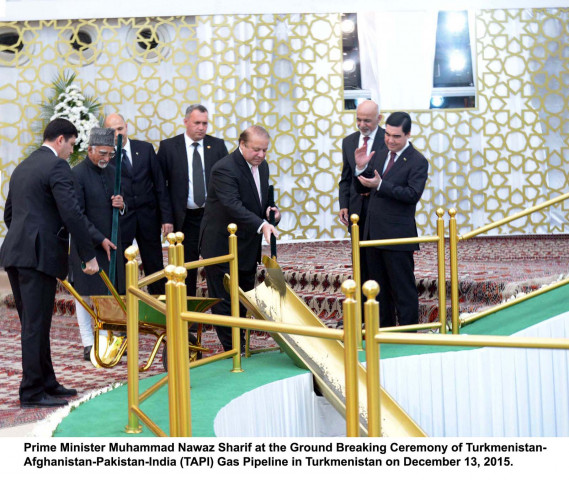Tiptoeing around Tapi
Four nations that are part of the $10-billion TAPI gas pipeline project have signed an initial investment agreement

Prime Minister Nawaz Sharif at the ground-breaking ceremony of TAPI gas pipeline in Turkmenistan on December 13, 2015. PHOTO: PID
Pakistan currently faces a shortfall of around two billion cubic feet of gas per day (bcfd), with 1.325 bcfd slated to be met by Tapi. Given the volatile history of the region, there is great scepticism over the future of the Tapi project, but there is also no doubt that much benefit is to be had from it if it goes ahead. Pakistan’s attempts to address its energy concerns have also seen it sign an LNG import agreement with Qatar, along with finalising another project with Russia to transport the fuel from Karachi to Lahore. The government has made attempts to plug the energy shortage over the past two years. However, there are several kinks to be ironed out, especially when it comes to Tapi and the Iran-Pakistan gas pipeline projects. There is still doubt over the latter project going ahead, even with sanctions on Iran being lifted, which makes it all the more necessary that the Tapi pipeline gets the green light. It remains to be seen whether the region will be willing to work for the greater good. Attempts to normalise relations have not worked for several years now and threats to peace have only increased in recent times. The Tapi project is important and all stakeholders need to treat it as such.
Published in The Express Tribune, March 7th, 2016.
Like Opinion & Editorial on Facebook, follow @ETOpEd on Twitter to receive all updates on all our daily pieces.















COMMENTS
Comments are moderated and generally will be posted if they are on-topic and not abusive.
For more information, please see our Comments FAQ